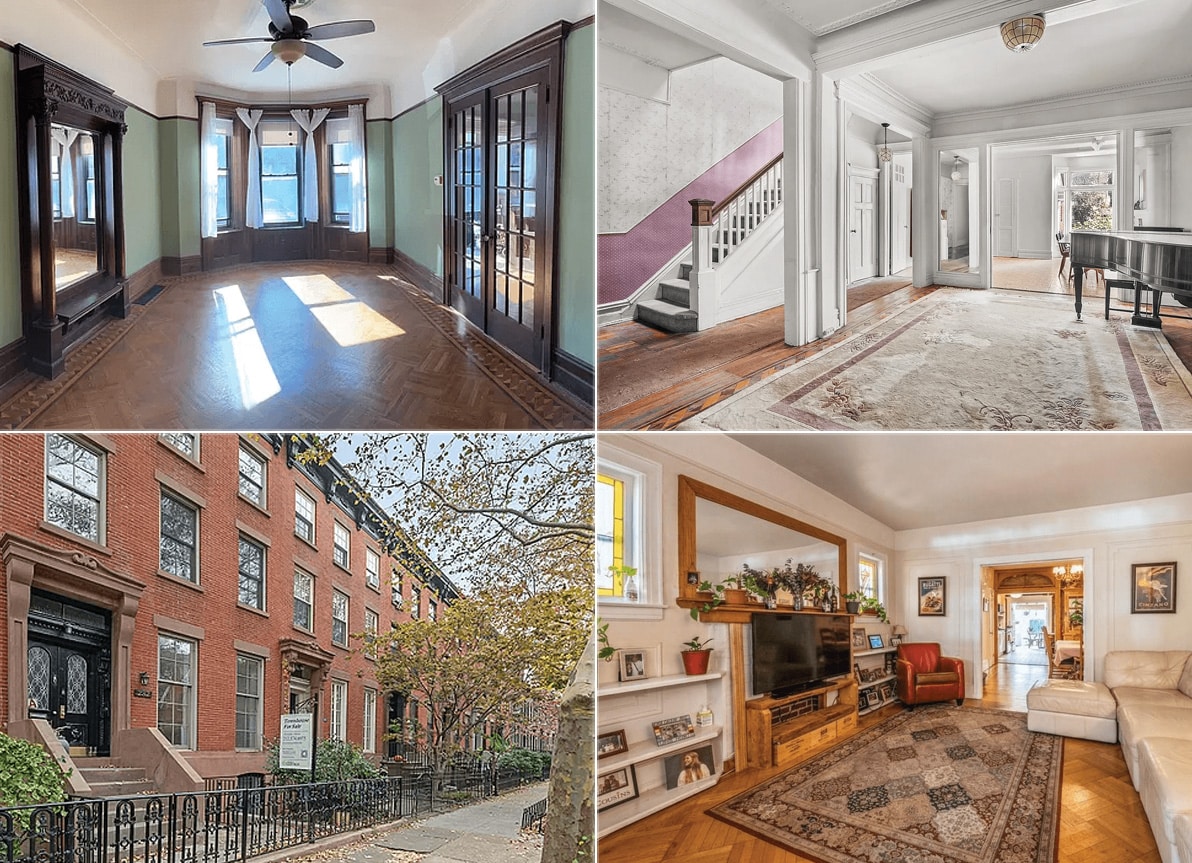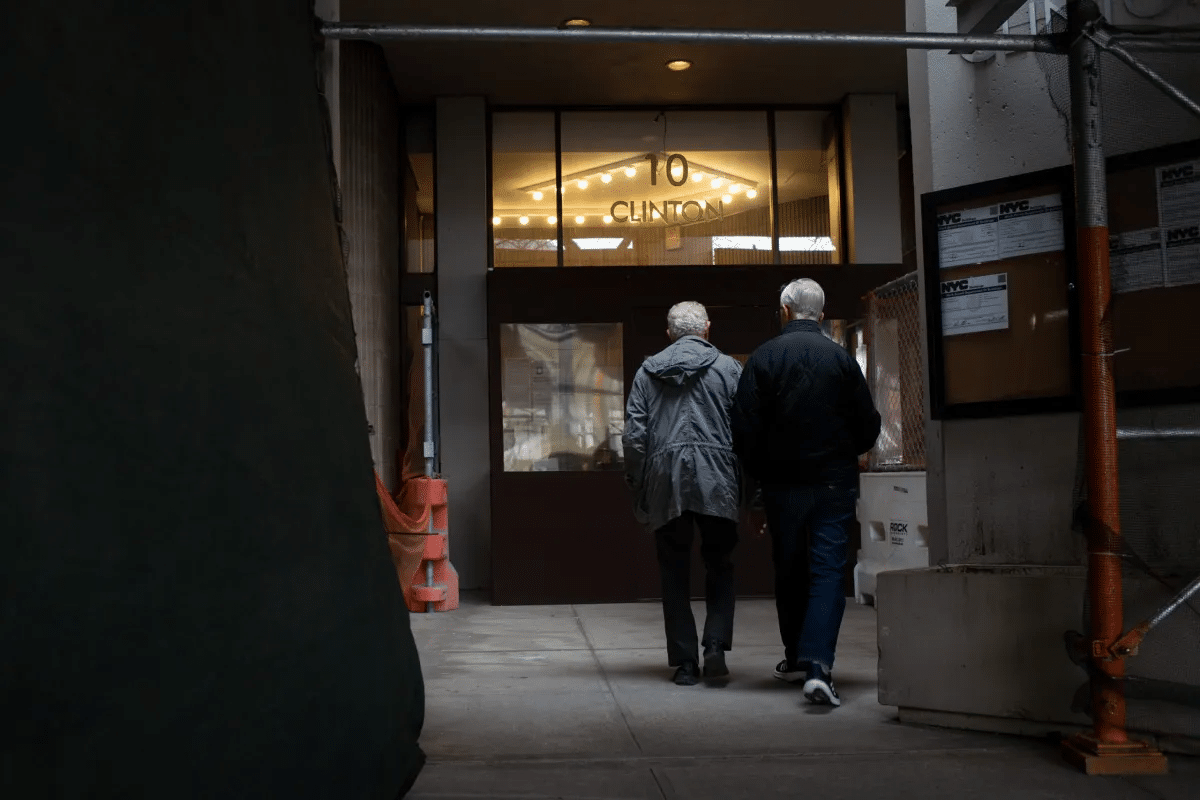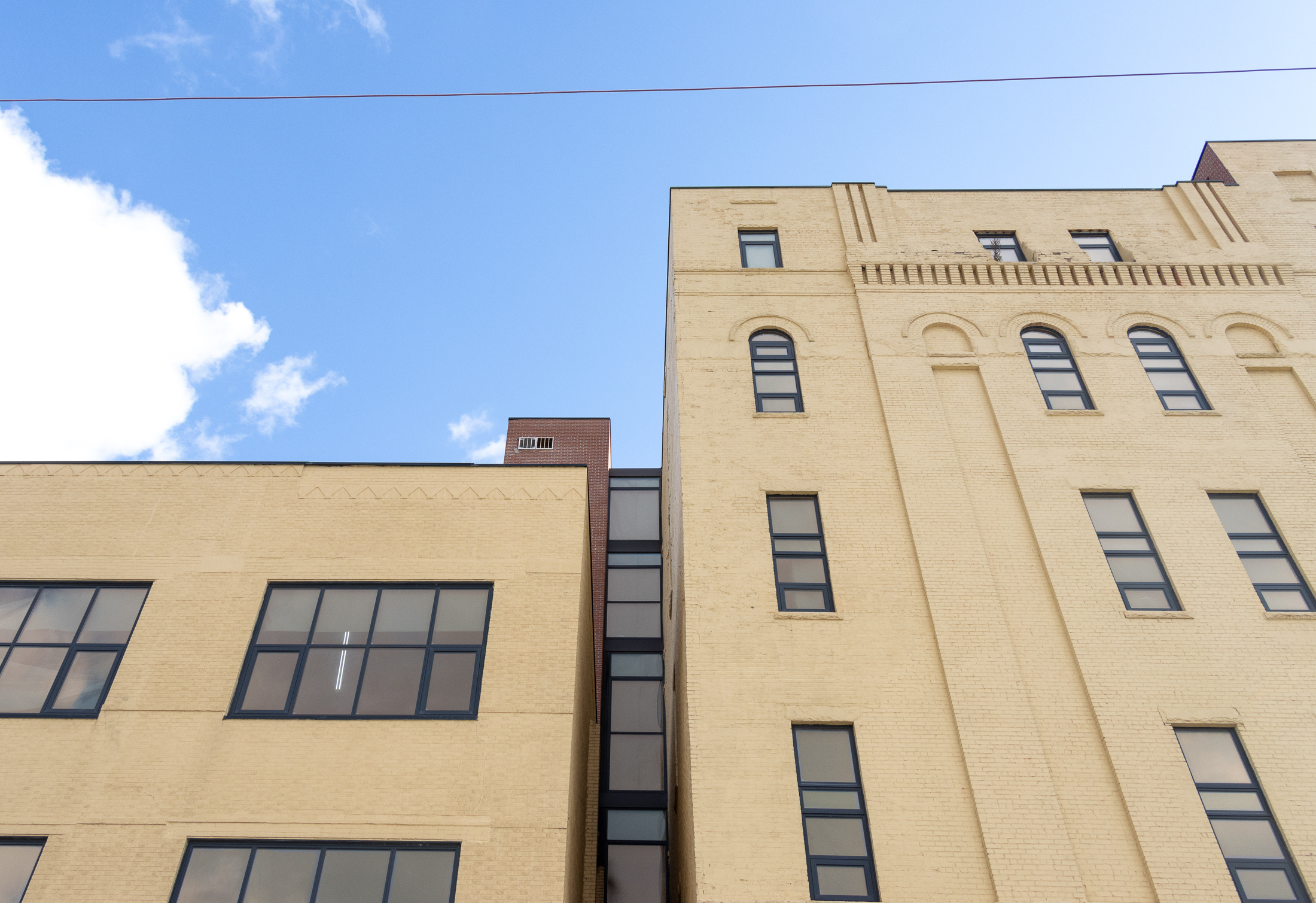Brownstoner on WNYC
FYI, we’re going to be on the Brian Lehrer Show this morning at 11:40am talking about the state of the NYC real estate market. You can catch it on WNYC 820 AM and 93.9 FM. The Brian Lehrer Show [WNYC]
FYI, we’re going to be on the Brian Lehrer Show this morning at 11:40am talking about the state of the NYC real estate market. You can catch it on WNYC 820 AM and 93.9 FM.
The Brian Lehrer Show [WNYC]









I have to take issue with the idea the brownstones in the west village sold for $25,000 thirty years ago! My parents bought an APARTMENT in the village 30 or more years ago for triple what you are quoting brownstones sold for! Stop with the stupid numbers in an attempt to make your point.
To anon 10:12 PM, there are a couple of significant economic differences between a suburban house and a brownstone (other than just the City cs. suburb lifestyle choice. First, most borwnstones have an income producing component since owner’s often occupy only part of the house and rent our a floor or a duplex. This is not possible in most suburbs. Second, real estate taxes are much higher in the suburbs. I looked at house in Westchester that had annual tax bills of 20K+. When you have kids, you can look at that as tution money spent on good suburban schools. When your kids grow up though, you still have to keep paying the taxes. So, if you have $20K of rental income from a floor through and $15K les in taxes you have about a $35K annual cost difference for carrying a brownstone vs. a suburban house.
Points well taken Brownstoner.
I admire the Forclosure Guy because he admited when he didn’t have an answer to the interviewers question. You rarely see such honesty — usually people just BS.
Nobody KNOWS where the markets headed, but I’d put my money on the Forclosure Guy’s opinion. He’s a down to earth type of person who sees things for what they are even if he couldn’t clearly explain what his thinking.
And you folks who think your Brooklyn brownstones are “special” should think again. When a house in a commuter suburb sells for a fraction of what a townhouse in Brooklyn costs, there’s no way in hell Brooklyn prices won’t drop.
Remember, only Warren Buffet can predict the future, and he lives Omaha.
This real estate stuff is hard to call, eh? But, I must say that you sounded exactly how I thought you would.
I’d like to buy some call options from anyone who thinks that residential real estate is going to decline for 8 years. First line of reasoning is that this has never happened before. Second, line of reasoning is math and the power of compounding. Say it takes a salary of $200,000 to wing a $1.0 million house today. Deprrciate $1.0 mm at 3% per year for 8 years and you get a $789K value in 8 years time. Conversely, appreciate a $200K salary(ies) at 3% and you get a salary of $253K in 8 years. Price to income goes from 5x to 3x during that time. No way buyers would sit on the sidelines as that happens.
We weren’t claiming that the market won’t fall to pieces. In fact, we were pretty explicit that we had no idea what would happen. Also, don’t think we ignored Foreclosure Guy’s point, only added that we suspect that most of the casualties already showing up on his radar screen are from the less affluent neighborhoods. That’s not to say there aren’t plenty of scenarios in which this trend could work its way up the economic totem pole and meaningfully impact the more expensive nabes.
Brooklyn real estate can, does, and will continue to fluctuate in price just like everywhere else in the world does. Stop claiming superiority! It’s sickening.
Brownstoner, the mere fact that lots of people would like to own Brownstones in Brooklyn does in no way mean the market won’t fall to pieces like you and your friend at NY Mag claim.
Thirty years ago brownstones sold for $25k in Greenwich Village and of course there were lots of people who would have loved to live in them then who couldn’t or didn’t buy.
You both were also wrong to ignore the Forclosure guys point (though I admit his accent was rough on the ears) that the percentage of owners versus renters is at an all time high in NYC and in many parts of the country.
Despite the fact that there are still lots of “potential” brownstone buyers out there, as you pointed out, it only seems logical that the rate of first time buyers buying will slow down due to sky high prices, a worsening economy, higher interest rates, the skewed relatationship between buying and renting, and first and foremost the fact that prices have risen unreasonably fast over the last five years and buyers are bound to eventually realize this.
Sure, Brooklyn is safer and offers more ammenities than ever before, and brownstones are a great place to live and raise a family, but prices are unreasonably high and clearly unsustainable.
Great interview, by the way. You’re on the way to the top. I hope you remember us little guys when you get there.
what does THAT mean – of COURSE every neighborhood is different. duh. and of course NY IS different – this is a destination area. people move here from their hometowns and after college and for their big break, big promotion, etc. it has always been different – more comparable to big cities internationally than to other cities in the US.
Good, but a little too much of “NYC is different.” It’s nonsense, and weakens the argument, because everyone and their grandma thinks their area is “different.”